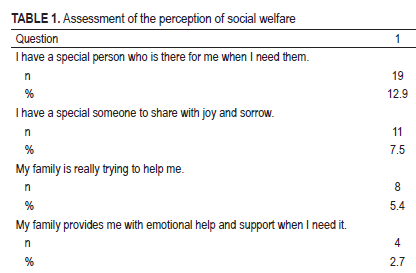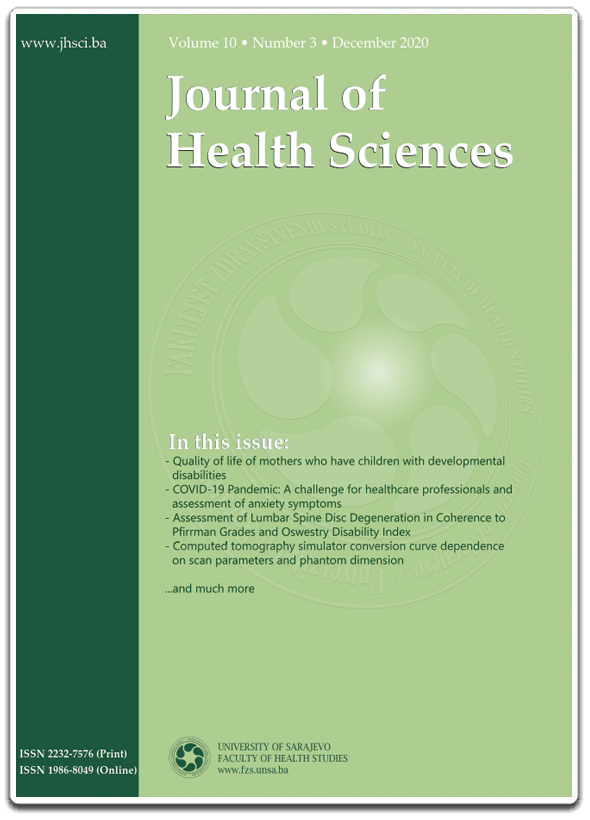The importance of social support for elderly people
DOI:
https://doi.org/10.17532/jhs.2024.2531Keywords:
Elderly people, multidimensional scale of perceived social support, social supportAbstract
Introduction: Social support is not a one-way relationship but is based on the connections people have with other people, groups, and the wider community. This study aimed to assess the perception of social support by people in the third age and to investigate the correlation of social support with the sociodemographic characteristics of the respondents.
Methods: A quantitative cross-sectional study was conducted with 147 elderly people who actively use the services of the Center for Health Promotion and Improvement “Generacija” in Sarajevo. The Multidimensional Scale of Perceived Social Support (MSPSS) was used to assess social perceptions.
Results: The results show a weak negative relationship between age and the total scale (r = −0.199, p = 0.05), with older people having lower scores on the total scale. A significant relationship was found between the subscale other factors and age (r = −0.202, p = 0.05). The evaluation of the performance of daily activities correlates weakly with the evaluation of the friend’s subscale (r = 0.186, p = 0.05). The friend’s subscale correlates significantly with the quality of social life (r = 0.227, p = 0.05). The subjective assessment of the quality of social life after arriving at the center showed a correlation with the overall scale score (r = 0.182, p = 0.05) and especially with the friend subscale (r = 0.219, p = 0.05), with the increase in social life and the subscales examined in both cases.
Conclusion: Users of the “Generacija” center rate social support on the MSPSS with high scores, with users receiving the most support from family. The sociodemographic characteristics of the respondents have an impact on the perception of social support by the users of the Center for Health Promotion and Improvement “Generacija,” more specifically; they were statistically significantly influenced by age, the way of performing daily activities, the quality of social life and the quality of social life after arrival at the Center.
Downloads

Downloads
Published
License
Copyright (c) 2024 Jasmina Mahmutović, Dalila Duhović, Amela Salihović, Suada Branković, Amila Jaganjac, Samir Bojičić

This work is licensed under a Creative Commons Attribution 4.0 International License.










